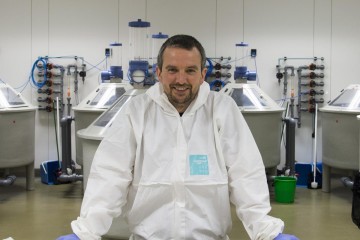Pilot study grant
Novel approaches to immortalise salmon fish cells

At a glance
Completed
Award date
December 2013 - February 2015
Grant amount
£74,443
Principal investigator
Dr Bertrand Collet
Co-investigator(s)
Institute
Marine Scotland Science
R
- Replacement
Read the abstract
View the grant profile on GtR
